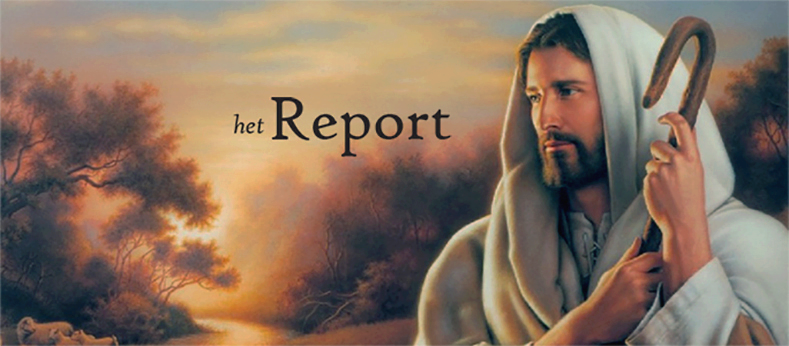upper room for Passover’ but ‘Adam dies in the week of Unleavened – which’ final seventh day is your date’ [version ; 2024-04apr.29] |
| spoiler : … having boldly approached the text the result is also striking — as a solid contextual buildup of the message “the same day that Moses went op unto mount Horeb to meet God and received the scroll from Him , so you will meet God when you will give the restored the scroll back to Him” : then this year Majesty please |

|
theme
… after Luke 6 where Christ appoints His firstfruits-attribute to us 144,000
by linking the twelve disciples unto the twelve sons of Jacob and unto us ,
the question arose ‘does this imply that (the day of) Firstfruits is our date ?’
or might ‘the final day of Unleavened’ in this same sacred week perhaps
be an even more applicable option considering all the context , so far ?
because ,
though we received the firstfruits-attribute from Him , that day itself is not
necessarily óur date – since a host of themes (especially the restored
scroll and the ‘7’ & ’12’ theme) suggest a connection with Unleavened —
problem though is that Esau made to vanish that latter term from the scroll
ever since the Exodus with only a handful of them left in NT : of these few
most relate to ‘the leaven of the Pharisees’ — by which last year we found
the theme of “declaring the scroll at the last day of Unleavened” —
yet now to our luck one instance remained however as part of a story that
greatly rambles on every side both in reasoning and buildup & her syntax ,
as “the disciples needing to find a room to celebrate the Passover meal”
WHY ‘go search for a dining room’ .. ?
… even the sections appear rather confident [=bluffing] in their wording ,
there is no justification for this alleged main premise , neither in prophets ,
and in spite of the ‘concordances’ bamboozling you with their Sorcery ;
so that we need to ask “what” must be found or prepared, by whom ?
Esau’s story leads up to the infamous “a man carrying a pitcher of water”
(cue the Aquarius-age crowd) as an important key for us to decode as a
bizarre phrase upon which much of our interpretation will hinge …
corruptions : only restorable when knowing where to look for ; section was
cut off from Luke 6 [end] and glued beneath the cross theme
theme : context 100% restored , syntax VERY high
fulltext : perhaps later
mirrors : Mark 14 and Matthew 26 (not usable)
[added 1/5 :]
– Numbers 9 is NO ‘2nd Passover’ but ‘the FINAL one’ ,
looking over the used roots her buildup must be at least similar to here ,
– the root ‘scroll’ (-sphr) is in the cluster ‘trumpet’ (-shpr) ,
suggesting very much a relation between ‘returning the scroll’ and ‘His answer’ , see text here ,
– Is.57:15-16 has the context of ‘Adam saying he will strive’ of Gen.6:3 ,
though the embedding is totally corrupted aspects may match the theme here
for you Sir
Luke 22 (7-13)
the key – in the starting line
(7)
“Then came the day of unleavened bread, when the passover must be killed.”
now ,
the ‘concordances’ confuse the time-frames for you : the ‘passover sacrifice’
happened the 14th but that was the day BEFORE the start of the seven days
of Unleavened , while the phrase “the day of Unleavened” usually refers to the
final seventh closing day of that week —
only because we know that Adam will be sacrificed , it can read (Lk.22:6) :
[=then] – (will) happen – the – day=week of – Unleavened ,
b
in – which – [..] passover=Adam – must – (be) sacrificed ;
that is ,
if we keep in mind that not necessarily this must be “in the Passover day” as
perhaps ‘to not pollute that sacred day’ — but certainly “in that same week” ;
though – admittedly – we don’t know (yet) “then when exactly” ;
next : ‘searching a location’ = a date (?)
… what can Esau have seen ?
though indeed we may need “a location” here it should signify “a date” —
now we have a big problem : though the text of Luke and Mark show similar
lines (-of his corrupted theme) the buildup is different so that the intended
reasoning of Christ is hard to follow — what can He have said , keeping in
mind that He knew that by now we would have understood Luke 6 ? since
we only have a limited number of words and don’t want to ‘spoil’ any
[for example : if the subject already wás “the sons of Ishral” then we do not
need to repeat that – costing us perhaps vital words we need for the clue] ;
and this one contains the mentioned “man – carrying – a jug of – water” :
(10)
“And he said unto them, Behold, when ye are entered into the city,
there shall a man meet you, bearing a pitcher of water;
follow him into the house where he entereth in.”
as
[=then] – he=they (‘the sons = you & we’) (will) say – (to) them(-selves) : behold ! ,
b
when – you=Moses – entered=ascended – [=upon] – the – city=mount (polis=oros)
c
[+he] met – you=the (Greek grammar) – man=God (anthrópos=theos)
d
[verb múst have been swapped b/c of buildup to leave ‘the scroll’ as end-subject :]
–
(who) carry=gave (‘close’) (-him) +
e
(the) jar=scroll (keramiON=bibliON) of – [+His] water=words +
e
(that) [+we] (have) follow=restored (AKoloutheÓ=KAtartizÔ) +
f
[Lk.22:10-b:] “him into the house where he entereth in.”
[Mk.14:14-a:] “And wheresoever he shall going ,”
whatever this said , if “restoring” is true we need a subject now ,
him=after – (the) in=sons (eis=yhios) of – [..] house=Esau (oiko=esaû) +
g
enters=corrupted (eis-poreuomai=dia-phtheirô) – where=it (stands before verb) ;
… as very possible interpretation —
after “the week of Unleavened” (in 7) now we have a solid “final day of her”
(and as bonus that NO ‘two + tablets’ were ever given ; see page) ;
more difficult now : do we need to include that also the ‘declaring it’ happened
on this day as confirming her importance ? “IN something IS something” as the
colour of this line – but what was ‘guestchamber’ (-kataluma) ? and why is that
changed in next 15 to ‘upper room’ (-anógeon) ?
(14)
“And ye shall say [‘declare’ !] unto the goodman of the house,
The Master saith unto thee,
Where is the guestchamber, where I shall eat the passover with my disciples?”
as ,
and – you=they (will) declare=understand
b
(that) the – [..] house=(self-) same – goodman=day
c
(in which-) [+they] (will have) say=declared – the – master=scroll – (unto-) him ,
d
[what póssible idea can be next ?
an “it will end where it began” ..? :] [educated attempt :]
–
[=now] – (will) be – the – guestchamber=fulfillment (?) (kataluma=plêrôma !!) of +
e
[..] passover=Unleavened
f
(in) with=which – I=he eat=gáve – [..] his – disciples=scroll ; [‘to Moses’ , line 10]
that makes Sense —
fortunately we could ‘evade’ the concept “acceptance” that would complicate things ,
just “the giving of the scroll vs the receiving back of his scroll” ;
Strong’s shows no noun of (-plêrôma) but that isn’t important ;
next , if we stay now with “something has ended” , but both Lk.22:12 & Mk.14:15
are suspicious : we may have “the great + upper room=trumpet” now because
where in prophets the restoring the scroll is about “you have answered Me” now
may appear His answering — both said ‘as trumpet and voice’ in prophets :
[phonê voice , hear akoê]
(12)
“And he shall shew you a large upper room furnished: there make ready.”
[attempt :]
and [+they] (will) that one=hear (?) (kai+ekeinos = kai+akoê) – you=indeed (?) +
b
(the) show=sounding (?) of – (the) great – upper room=trumpet
c
(as) (the-) furnished=answer of God (?) (strónnuó=chrêmatismos)
d
there=in – (that-) make ready=day (hetoimzó=hêmera) (as in next line ?) ;
(16) [Mk.14]
“And his disciples went forth, and came into the city, and found as he had said unto them:
and they made ready the passover.”
as
[=for] – they=I (will) went forth=gather – the – disciples=remnant of – him=Ishral (‘144’)
b
and – came=bring [+them] – [=unto] – [..] [+his] city=mount (‘tsiun’) , [‘see 10’]
c
[now we almost néed ‘an appearing to them’ :]
–
and – they (will) found=meet (‘no match’) [+him] + [compare line 10 !]
d
as – he (has) said=promised – them + [or ‘as Moses did’ , line 10 ?]
e
and=on – (the) made ready=day (hetoimzó=hêmera) of – passover=Unleavened .
… here ,
the restored line is VERY strong not only in syntax but also since it refers back to 10 ,
wherefore the last day of Unleavened became a serious candidate for us ; ) …
end of section —
